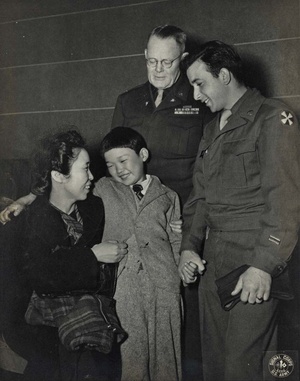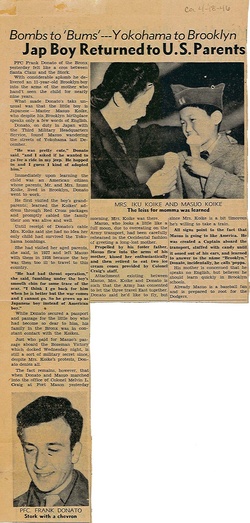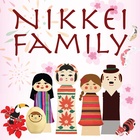Masuo John (Matt) Koike was born in New York in 1935 to first-generation Japanese parents, Izumi and Iku, who had emigrated from Japan. Before moving to the United States, Masuo’s father, Izumi, classically trained as a chef in Paris. In the Bronx, Masuo’s parents owned and operated several small restaurants.
At a young age, Masuo accompanied his mother to Yokohama, Japan, for an extended visit with his grandparents. Unfortunate circumstances required that his mother return to New York, leaving Masuo to stay with family. In the months to come, Masuo’s older half-brother, Satoshi, was to accompany Masuo back to New York. World War II intervened, and Masuo remained in Japan, separated from his parents for the duration of the war (approximately nine years).
During the occupation, Masuo lived with his grandmother and his aunt’s extended family. Masuo’s Japanese family relocated to the European section of Yokohama. There, he and other children were befriended by GIs who shared candy and gave the children jeep rides.
Masuo wore his brother’s pea coat, which attracted the attention of Private First Class Frank Donato from Brooklyn, New York. Frank discovered that Masuo was an American citizen and nicknamed him “Johnny,” a name that Masuo subsequently adopted as his middle name. Frank, with the approval of his commanding officer, contacted the Koikes in New York. Until then, Masuo’s mother was unaware that Masuo had survived the war.
Arrangements were made for Masuo to travel on a military ship to San Francisco where his mother met him in April 1946. Masuo, then 11, was the first American civilian to return to the United States from Japan after the war, a story that several newspapers reported at the time.
Meanwhile in New York, Masuo’s parents—unable to stay in business due to anti-Japanese sentiment—went to work as domestics. They were visited frequently by the FBI, though Mrs. Koike recalled that the authorities were always very polite. After the war, the Koikes persevered and bought another restaurant in the Bronx, which catered to the growing Irish population. Customers came in for breakfast, took out lunch boxes, and returned for dinner.
Masuo returned to the Bronx during the summer of 1946 and quickly re-learned English on the school playground. Influenced by his father, he began to read the many daily newspapers published in New York and took an immediate interest in politics and international relations.
Masuo Koike was proud of his Japanese heritage and proud to be an American. Following World War II, his family became part of a Japanese American social club, the Niko Niko Club, for those who relocated to New York after leaving the internment camps in the Western United States.
Masuo studied biology at Johns Hopkins University, served in the United States Army, and earned a medical degree from the University of Barcelona, Spain. He met his wife, Janis Ilene Luke, an American from Kansas City, Missouri, who was on a Fulbright scholarship in Barcelona. The two married abroad and moved back to New York City. He completed his residency in obstetrics and gynecology at Kings County / Downstate Hospital in Brooklyn and eventually moved to Winter Haven, Florida, with his wife and two children, Sara Kumiko and Michael Takeo.
Masuo was, to the heart, a New Yorker. He loved basketball, from the local high school team, to his beloved New York Knicks, and then eventually to his adopted Orlando Magic. The Koikes could be seen most weeks in the stands cheering on the Orlando Magic. Masuo also loved baseball, specifically the former Boston Braves, and enjoyed jazz and classical music. He passed on his love of classical music to his daughter, whom he took to the Boston Symphony to see the legendary Seiji Ozawa conduct Mahler’s 5th. Masuo had a passion for politics and read the New York Times from cover to cover. He would often cut out interesting stories and send them to his children while they were away at school.
Masuo was described as a gentle, kind-hearted man. Masuo retired from private practice in 2011. Dr. Koike passed away in 2014.
© 2015 Sara Kumiko Koike Abiusi, Michael Takeo Koike






